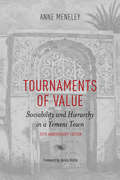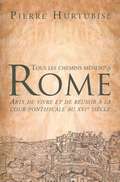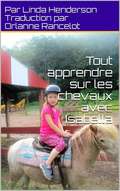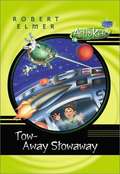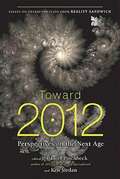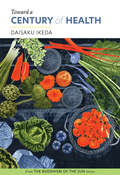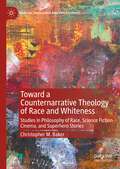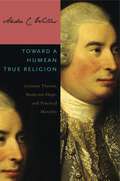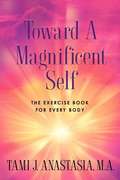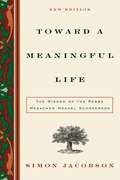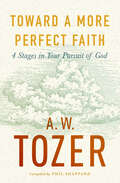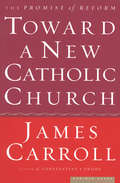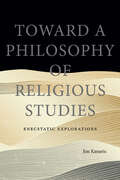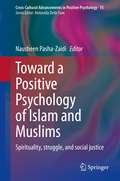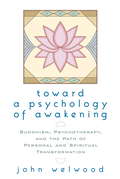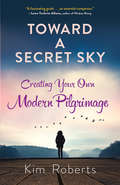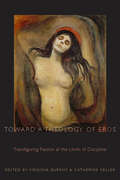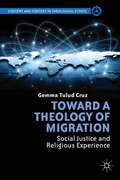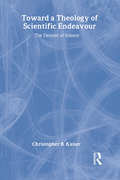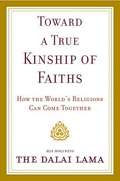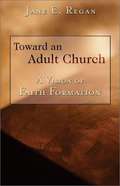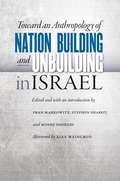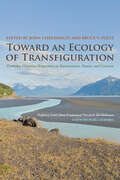- Table View
- List View
Tournaments of Value: Sociability and Hierarchy in a Yemeni Town
by Anne MeneleyA significant contribution to our understanding of the varied experience of women in the Islamic Middle East, Tournaments of Value gives a careful description of a world of female socializing, and the velocity, energy, and elaborateness of this remarkable female social world. Meneley's data challenges assumptions about the cross-cultural validity of a division between household and community, between domestic and public domains. She demonstrates the fluidity of social life, the shifting nature of community organization, and in doing so provides a welcome counterpoint to more rigid formulations of Middle Eastern social structure usually expressed in ethnographies. Tournaments of Value incorporates vignettes to illustrate more analytical points and to enliven the text, allowing the reader to enter fully into the rich world of Zabid in Yemen. This expanded 20th anniversary edition introduces this seminal work on Middle Eastern ethnography and women's studies to a new generation of readers.
Tous les chemins mènent à Rome: Arts de vivre et de réussir à la cour pontificale au XVIe siècle
by Pierre HurtubiseCet ouvrage propose une incursion dans le monde de la cour pontificale et des cours cardinalices au XVIe siècle. En quoi consistait ce monde, qui en faisait partie, comment y entrait-on, quels avantages pouvait-on espérer en tirer et pourquoi était-on à ce point attiré par lui? Autant de questions auxquelles l'ouvrage cherche à répondre à partir de nombreux documents d'époque, documents souvent peu connus ou peu exploités : des rôles de cour, des livres de comptes, des registres de salaires, des cérémonials, des correspondances inédites et des traités qui leur sont contemporains. Ces multiples regards sur un monde encore mal connu, sur les personnages, grands et petits, qui en font partie, y trouvant pour la plupart profit et intérêt pour eux-mêmes et leur famille, permettent de comprendre pourquoi la cour pontificale faisait l'admiration, puis surtout l'envie de tant de contemporains qui étaient prêts à tout pour y accéder. Publié en français
Tout apprendre sur les chevaux avec Isabella
by Linda HendersonCe livre s’adresse aux enfants qui aiment les chevaux, et qui aimeraient en apprendre le plus possible sur eux. Il contient des faits intéressants sur les différents types de chevaux, leur lieu de vie, ce qu’ils aiment manger, etc. Y-aura-t-il des chevaux au paradis ? La réponse se trouvent dans Tout apprendre sur les chevaux avec Isabella. Si vous aimez les chevaux, alors vous devriez lire ce livre !
Tow-away Stowaway (AstroKids #10)
by Robert ElmerBook 10 of AstroKids. Yearning for his own adventure, Tag takes his sister's space scooter for a ride and ends up trapped on a vessel that only serves Cheez Whiz. He knows he's in deep-space trouble, but he also knows that with God, he's never really alone.
Toward 2012
by Pinchbeck Daniel Ken JordanAn informed, challenging, and engaging collection of essays on the new choices in lifestyles and community as we begin the countdown toward the year 2012. This fresh and thought-provoking anthology draws together some of today's most celebrated visionaries, thinkers, and pioneers in the field of evolving consciousness- exploring topics from shamanism to urban homesteading, the legacy of Carlos Castaneda to Mayan predictions for the year 2012, and new paths in direct political action and human sexuality. Toward 2012 highlights some of the most challenging, intelligent pieces published on the acclaimed website Reality Sandwich. It is coedited by Daniel Pinchbeck, the preeminent voice on 2012, and online pioneer Ken Jordan, and features original works from Stanislav Grof, John Major Jenkins, and Paul D. Miller (DJ Spooky); interviews with Abbie Hoffman and artist Alex Grey; and a new introduction by Pinchbeck. Here are ideas that trace the arc of our evolution in consciousness, lifestyles, and communities as we draw closer to a moment in time that portends ways of living that are different from anything we have expected or experienced.
Toward a Century of Health
by Daisaku Ikeda"The problem of illness," Buddhist philosopher and activist Daisaku Ikeda writes, "is not only physical symptoms but that it can rob people of the hope to live, destroy their livelihood and sense of well-being, and put their future on hold." Nichiren Buddhism has always fought against this negative energy and given people the spiritual strength and courage to go on living with dignity. These essays, based on the thirteenth-century Buddhist reformer Nichiren, delve into Buddhist wisdom that offers powerful insights to help us overcome the inevitable sufferings of illness and make this a century of health.
Toward a Counternarrative Theology of Race and Whiteness: Studies in Philosophy of Race, Science Fiction Cinema, and Superhero Stories (Radical Theologies and Philosophies)
by Christopher M. BakerThis book argues that “race” and “whiteness” are central to the construction of the modern world. Constructive Theology needs to take them seriously as primary theological problems. In doing so, Constructive Theology must fundamentally change its approach, and draw from the emerging field of Philosophy of Race. Christopher M. Baker develops a genealogy of race that understands “whiteness” as a kind secular soteriology, and develops a counternarrative theological method informed by resources from Philosophy of Race. He then deploys that method to read science fiction cinema and superhero stories as cultural, racial, and theological documents that can be critically engaged and redeployed as counternarratives to dominant racial narratives.
Toward a Humean True Religion: Genuine Theism, Moderate Hope, and Practical Morality
by Andre C. WillisDavid Hume is traditionally seen as a devastating critic of religion. He is widely read as an infidel, a critic of the Christian faith, and an attacker of popular forms of worship. His reputation as irreligious is well forged among his readers, and his argument against miracles sits at the heart of the narrative overview of his work that perennially indoctrinates thousands of first-year philosophy students. In Toward a Humean True Religion, Andre Willis succeeds in complicating Hume’s split approach to religion, showing that Hume was not, in fact, dogmatically against religion in all times and places. Hume occupied a “watershed moment,” Willis contends, when old ideas of religion were being replaced by the modern idea of religion as a set of epistemically true but speculative claims. Thus, Willis repositions the relative weight of Hume’s antireligious sentiment, giving significance to the role of both historical and discursive forces instead of simply relying on Hume’s personal animus as its driving force. Willis muses about what a Humean “true religion” might look like and suggests that we think of this as a third way between the classical and modern notions of religion. He argues that the cumulative achievements of Hume’s mild philosophic theism, the aim of his moral rationalism, and the conclusion of his project on the passions provide the best content for this “true religion.”
Toward a Humean True Religion: Genuine Theism, Moderate Hope, and Practical Morality
by Andre C. WillisDavid Hume is traditionally seen as a devastating critic of religion. He is widely read as an infidel, a critic of the Christian faith, and an attacker of popular forms of worship. His reputation as irreligious is well forged among his readers, and his argument against miracles sits at the heart of the narrative overview of his work that perennially indoctrinates thousands of first-year philosophy students. In Toward a Humean True Religion, Andre Willis succeeds in complicating Hume’s split approach to religion, showing that Hume was not, in fact, dogmatically against religion in all times and places. Hume occupied a “watershed moment,” Willis contends, when old ideas of religion were being replaced by the modern idea of religion as a set of epistemically true but speculative claims. Thus, Willis repositions the relative weight of Hume’s antireligious sentiment, giving significance to the role of both historical and discursive forces instead of simply relying on Hume’s personal animus as its driving force. Willis muses about what a Humean “true religion” might look like and suggests that we think of this as a third way between the classical and modern notions of religion. He argues that the cumulative achievements of Hume’s mild philosophic theism, the aim of his moral rationalism, and the conclusion of his project on the passions provide the best content for this “true religion.”
Toward a Magnificent Self: The Exercise Book for Every Body
by Tami AnastasiaYour relationship with exercise is influenced by your thoughts and feelings. Developing a better relationship with exercise involves changing your frame of mind completely--your thoughts, beliefs, self-talk, the reasons you exercise, and how you measure the benefits. When you change what you think, your exercise habits change as well. The philosophy behind this book is that everyone can make those changes, and learn pleasurable and sustainable ways of incorporating exercise into their daily lives.
Toward a Meaningful Life, New Edition: The Wisdom of the Rebbe Menachem Mendel Schneerson
by Simon JacobsonWith a new foreword and chapter that address the upheaval that followed the events of September 11, Toward a Meaningful Life is a spiritual road map for living based on the teachings of one of the foremost religious leaders of our time: Rabbi Menachem Mendel Schneerson. Head of the Lubavitcher movement for forty-four years and recognized throughout the world simply as "the Rebbe," Menachem Mendel Schneerson, who passed away in June 1994, was a sage and visionary of the highest order. Toward a Meaningful Life gives Jews and non-Jews alike fresh perspectives on every aspect of their lives -- from birth to death, youth to old age; marriage, love, intimacy, and family; the persistent issues of career, health, pain, and suffering; and education, faith, science, and government. We learn to bridge the divisions between accelerated technology and decelerated morality, between unprecedented worldwide unity and unparalleled personal disunity. At the threshold of a new world where matter and spirit converge, the Rebbe proposes spiritual principles that unite people as opposed to the materialism that divides them. In doing so, he continues to lead us toward personal and universal redemption, a meaningful life, and God.
Toward a More Perfect Faith: 4 Stages in Your Pursuit of God
by A. W. TozerThere has hardly ever been in my ministry a series of sermons to which I have given more time, more pain and more prayer than I did to this series from Philippians 3.A. W. Tozer called these sermons the most important he ever preached. Looking closely at Philippians 3, he describes the Christian as a modern-day Lazarus who hears the call to arise—but can't escape the grave clothes. In this new series of sermon transcriptions, Tozer shows us how to live with freedom.Toward a Deeper Faith gives us Tozer&’s sermons on:Considering Perfection in the Christian LifeFour Kinds of ChristiansDiscovering the Loveliness of Jesus ChristThe Will of God and Its Relationship to Our CrossThe Obstacle of Self TrustLiving in His Righteousness . . . and more.We are heirs to the King, and Tozer wants us to reclaim our heritage. Return again and again to Tozer&’s twelve sermons that will bring you into a deeper life of love and maturity in Jesus Christ.
Toward a New Catholic Church: The Promise of Reform
by James CarrollThe National Book Award–winning author &“seizes the moment of Catholicism&’s sexual-abuse crisis&” to call for a Vatican III (Publishers Weekly). Elaborating on &“A Call for Vatican III&” from his New York Times–bestseller Constantine&’s Sword: The Church and the Jews, James Carroll proposes a clear agenda for reform, to help committed but concerned Catholics understand the most essential issues facing their Church. Carroll moves beyond current events to suggest new ways for Catholics to approach Scripture, Jesus, and power, and he looks at the daunting challenges facing the Church in a world of diverse beliefs and contentious religious fervor. His thought-provoking case for democracy within the Church illustrates why lay people have already initiated change. Carroll shows that all Catholics—parishioners, priests, bishops, men and women—have an equal stake in ensuring the Church&’s future. &“The boisterous collapse of trust in the Catholic hierarchy during the pedophile scandals makes it not only important but imperative to heed this eloquent call for a new Ecumenical (this time truly ecumenical) Council.&” —Garry Wills, author of Why I Am a Catholic
Toward a New Council of Florence: On the Peace of Faith and other Works by Nicolaus of Cusa
by Marianna Wertz William WertzThis is a book of English translations of the writings of one of the most important geniuses in history--Cardinal Nicolaus of Cusa (1401-1464). He created ideas which had never been conceived before and which changed history for the better--up through our time and far, far into the future. His thinking processes are sometimes summed up in his concept of the “coincidence of opposites.” Instead of starting his thought process from accumulated sense perceptions and deducing law from observed appearances, Cusa starts with the hypothesis that there must be an original potential from which all multiplicity derives. By starting from the top, or “the Origin,” Cusa was able to solve previously insoluble problems. For example, his idea that the “right to govern comes from the consent of the governed” was not only the basis for solving clashes within the Catholic Church, and even the attempt to reunify all of the various Christian churches at the Council of Florence, but also lay at the heart of the experiments in government set up in the New England colonies of North America and the later creation of the United States Constitution. Besides the title work “On the Peace of Faith” which resolves the conflicts among the religions, 17 other papers are translated into English--14 for the first time. The ongoing renaissance in the study of Cusa worldwide is the basis for resolving the conflicts which still plague the world.
Toward a Philosophy of Religious Studies: Enecstatic Explorations
by Jim KanarisIn this important work, Jim Kanaris provides a unique approach to the study of religion, aiming to alleviate the methodological and ideological barriers that divide philosophers, theologians, and social scientists. This is a "philosophy of religion" for a wider audience than that designation usually circumscribes, and, for that reason, Kanaris opts for the broader "philosophy of religious studies." He hybridizes insights principally from the works of Bernard Lonergan and Martin Heidegger but also those of Jacques Derrida, Charles Winquist, and Tyler Roberts, among others. Kanaris combines this with a distinctive hermeneutical approach that gives rise to what he calls "enecstatic" philosophy, one that manages the irreducible complexity of one's individuality, a singularity, in the negotiation of one's objects of concern. Toward a Philosophy of Religious Studies is unlike any other book in religious studies. It provides a unique way to surface personal involvement in the study of religion without compromising scholarly objectivity and philosophical integrity.
Toward a Positive Psychology of Islam and Muslims: Spirituality, struggle, and social justice (Cross-Cultural Advancements in Positive Psychology #15)
by Nausheen Pasha-ZaidiThis book integrates research in positive psychology, Islamic psychology, and Muslim wellbeing in one volume, providing a view into the international experiential and spiritual lives of a religious group that represents over 24% of the world’s population. It incorporates Western psychological paradigms, such as the theories of Jung, Freud, Maslow, and Seligman with Islamic ways of knowing, while highlighting the struggles and successes of minoritized Muslim groups, including the LGBTQ community, Muslims with autism, Afghan Shiite refugees, and the Uyghur community in China.It fills a unique position at the crossroad of multiple social science disciplines, including the psychology of religion, cultural psychology, and positive psychology. By focusing on the ways in which spirituality, struggle, and social justice can lead to purpose, hope, and a meaningful life, the book contributes to scholarship within the second wave of positive psychology (PP 2.0) that aims to illustrate a balance between positive and negative aspects of human experience. While geared towards students, researchers, and academic scholars of psychology, culture, and religious studies, particularly Muslim studies, this book is also useful for general audiences who are interested in learning about the diversity of Islam and Muslims through a research-based social science approach.
Toward a Psychology of Awakening: Buddhism, Psychotherapy, and the Path of Personal and Spiritual Transformation
by John WelwoodHow can we connect the spiritual realizations of Buddhism with the psychological insights of the West? In Toward a Psychology of Awakening John Welwood addresses this question with comprehensiveness and depth. Along the way he shows how meditative awareness can help us develop more dynamic and vital relationships and how psychotherapy can help us embody spiritual realization more fully in everyday life. Welwood's psychology of awakening brings together the three major dimensions of human experience: personal, interpersonal, and suprapersonal, in one overall framework of understanding and practice.
Toward a Secret Sky: Creating Your Own Modern Pilgrimage
by Kim Roberts"A kind and accessible book that supports the human longing for a meaningful life." — Elizabeth Mattis Namgyel, author of The Logic of FaithToward a Secret Sky is a guidebook for modern pilgrims who are searching for encouragement in following their commitment to a spiritual path. Kim Roberts acts as a friendly guide, helping people navigate the strange and exhilarating journey of a spiritual seeker. She shares stories from her own years of pilgrimage in places like India, Thailand, and Bhutan, and prompts readers to jump-start their unique path of discovery with meditation and writing exercises. "With simple and profound practices, Kim Roberts guides us to explore our inner landscape in the context of the external world and Toward a Secret Sky magnificently illuminates the path of the most sacred journey we will ever take. This beautiful book is a compass that I will return to again and again." — Nancy Levin, author of Jump . . . and Your Life Will Appear"Wisdom and kindness shine through every page, and practical advice leaves you well equipped to set out on your own path of discovery. These are footsteps worth following." — Andrew Holecek, author of Dream Yoga
Toward a Theology of Eros: Transfiguring Passion at the Limits of Discipline (Transdisciplinary Theological Colloquia)
by Virginia Burrus Catherine KellerWhat does theology have to say about the place of eroticism in the salvific transformation of men and women, even of the cosmos itself? How, in turn, does eros infuse theological practice and transfigure doctrinal tropes? Avoiding the well-worn path of sexual moralizing while also departing decisively from Anders Nygren’s influential insistence that Christian agape must have nothing to do with worldly eros, this book explores what is still largely uncharted territory in the realm of theological erotics. The ascetic, the mystical, the seductive, the ecstatic—these are the places where the divine and the erotic may be seen to converge and love and desire to commingle.Inviting and performing a mutual seduction of disciplines, the volume brings philosophers, historians, biblical scholars, and theologians into a spirited conversation that traverses the limits of conventional orthodoxies, whether doctrinal or disciplinary. It seeks new openings for the emergence of desire, love, and pleasure, while challenging common understandings of these terms. It engages risk at the point where the hope for salvation paradoxically endangers the safety of subjects—in particular, of theological subjects—by opening them to those transgressions of eros in which boundaries, once exceeded, become places of emerging possibility.The eighteen chapters, arranged in thematic clusters, move fluidly among and between premodern and postmodern textual traditions—from Plato to Emerson, Augustine to Kristeva, Mechthild to Mattoso, the Shulammite to Molly Bloom, the Zohar to the Da Vinci Code. In so doing, they link the sublime reaches of theory with the gritty realities of politics, the boundless transcendence of God with the poignant transience of materiality.
Toward a Theology of Migration
by Gemma Tulud CruzAt no other time in the history of the world is the movement of people at such a large scale that scholars consider the current period as the age of migration. Beyond the density, velocity, and multi-directionality, however, the often conflicting and tragic nature of contemporary global migration makes a compelling case for theological reflection. The book explores the problems and possibilities that the experience of migrants brings to Christian theology by reflecting on the religious dimension as well as the social justice implications of the migrant experience. More specifically, the book reflects on the Christian vision of 'one bread, one body, one people' in view of the gifts and challenges of contemporary global migration to Christian systematic theology, social ethics, spirituality, mission, ministry, and inculturation based on the experience of refugees, unauthorized poor migrants, migrant workers, and migrant women.
Toward a Theology of Scientific Endeavour: The Descent of Science (Routledge Science and Religion Series)
by Christopher B. KaiserFoundations of science are specific conditions of the cosmos, of human intelligence, of cultural beliefs, and of technological structures that make the pursuit of modern science possible. Each of the four foundations of scientific endeavour can be studied as a topic on its own. The concurrent study of all four together reveals several tensions and interconnections among them that point the way to a greater unification of faith and science. This book explores four foundations of scientific endeavour and investigates some of the paradoxes each of them raises. Kaiser shows that the resolution of these paradoxes inevitably leads us into theological discourse and raises new challenges for theological endeavour. In order to address these challenges, Kaiser draws on the wider resources of the Judeo-Christian tradition and argues for a refocusing of contemporary theology from the perspective of natural science.
Toward a True Kinship of Faiths: How the World’s Religions Can Come Together
by Dalai LamaNo country, no culture, no person today is untouched by what happens in the rest of the world. Technological innovation, environmental degradation, economic gain & loss, nuclear weapons, instant communication have all created unprecedented familiarity among the world's many cultures. With this historic development, the Dalai Lama understands that the essential task of humanity in the 21st Century is to cultivate peaceful coexistence. Many believe in the inevitability of an escalating "clash of civilizations". Peaceful coexistence has long been problematic with religion, and while previous conflicts over religious differences may have been significant and regrettable, they did not threaten the very survival of humanity. Now, when extremists can persuade followers with the immense emotional power of faith and have access to powerful technological resources, a single spark could ignite a powder keg of frightening proportions. Yet the Dalai Lama shows how the challenges of globalization can also move us in another direction, to a deeper plane where nations, cultures, and individuals connect through their shared human nature. All major religions confront the same perennial questions; each have distinct forms of expression. But this marvelous diversity of insight has the potential for inspiring dialogue which can enrich everyone's pursuit of wisdom. All faith traditions turn to compassion as a guiding principle for living a good life. It is the task of all people with an aspiration to spiritual perfection to affirm the fundamental value of the compassion. In this way we can truly develop a deep recognition of the value of other faiths, and on that basis, we can cultivate genuine respect. In Toward a True Kinship of Faiths, the Dalai Lama also explores where differences between religions can be genuinely appreciated without serving as a source of conflict. The establishment of genuine harmony is not dependent upon accepting that all religions are fundamentally the same or that they lead to the same place. Many fear that recognizing the value of another faith is incompatible with having devotion to the truth of one's own. Nevertheless, the Dalai Lama profoundly shows how a sincere believer can, with integrity, be a pluralist in relation to other religions without compromising commitment to the essence of the doctrinal teachings of their own faith. An issue of central importance for the Dalai Lama personally and for the entire world in general, Toward a True Kinship of Faiths offers a hopeful yet realistic look at how humanity must step into the future.From the Hardcover edition.
Toward an Adult Church: A Vision of Faith Formation
by Jane ReganA Vision of Faith Formation, Jane Regan explores the current structure of parish catechesis. Basing her ideas on contemporary theory and traditional practice, Regan sets forth an intriguing argument: the vitality of the Church depends on establishing a new education paradigm—one that is focused on adults.
Toward an Anthropology of Nation Building and Unbuilding in Israel (Studies of Jews in Society)
by Fran Markowitz Stephen Sharot Moshe Shokeid Alex WeingrodToward an Anthropology of Nation Building and Unbuilding in Israel presents twenty-two original essays offering a critical survey of the anthropology of Israel inspired by Alex Weingrod, emeritus professor and pioneering scholar of Israeli anthropology. In the late 1950s Weingrod’s groundbreaking ethnographic research of Israel’s underpopulated south complicated the dominant social science discourse and government policy of the day by focusing on the ironies inherent in the project of Israeli nation building and on the process of migration prompted by social change. Drawing from Weingrod’s perspective, this collection considers the gaps, ruptures, and juxtapositions in Israeli society and the cultural categories undergirding and subverting these divisions. Organized into four parts, the volume examines our understanding of Israel as a place of difference, the disruptions and integrations of diaspora, the various permutations of Judaism, and the role of symbol in the national landscape and in Middle Eastern studies considered from a comparative perspective. These essays illuminate the key issues pervading, motivating, and frustrating Israel’s complex ethnoscape.
Toward an Ecology of Transfiguration: Orthodox Christian Perspectives on Environment, Nature, and Creation (Orthodox Christianity and Contemporary Thought)
by John Chryssavgis and Bruce V. FoltzCan Orthodox Christianity offer spiritual resources uniquely suited to the environmental concerns of today? This book makes the case emphatically that it can indeed. In addition to being the first substantial and comprehensive collection of essays, in any language, to address environmental issues from the Orthodox point of view, this volume (with contributions from many of the most influential theologians and philosophers in contemporary world Orthodoxy) will engage a wide audience, in academic as well as popular circles—resonating not only with Orthodox audiences but with all those in search of a fresh approach to environmental theory and ethics that can bring to bear the resources of ancient spirituality, often virtually unknown in the West, on modern challenges and dilemmas.
